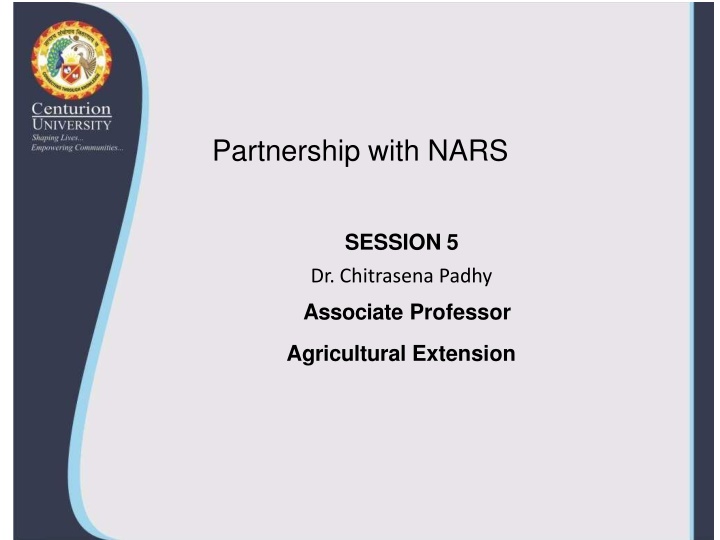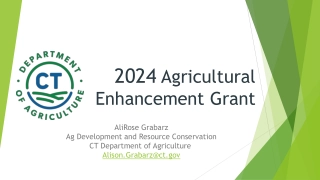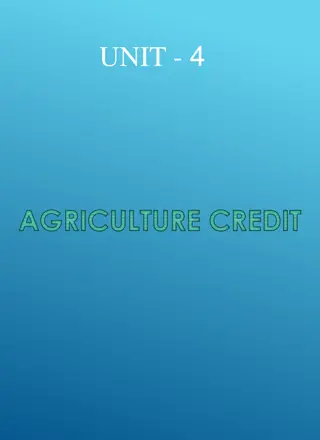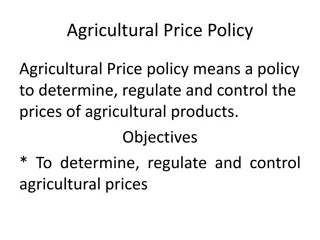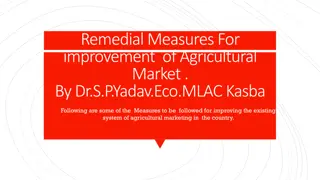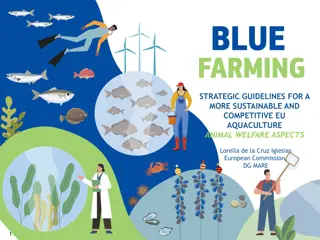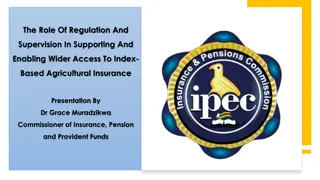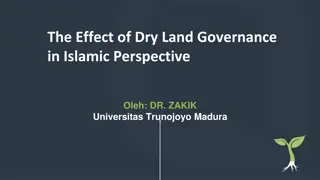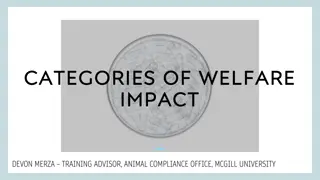Enhancing Agricultural Research for Global Welfare
Universities and research organizations in developed countries are vital for fostering global agricultural research initiatives. Their expertise in basic and applied research, biotechnology, and training serves as a cornerstone for advancing agricultural development in both developed and developing nations. The private sector's increasing involvement, especially in biotechnology research, shows great promise in contributing towards global food security and sustainability.
Download Presentation

Please find below an Image/Link to download the presentation.
The content on the website is provided AS IS for your information and personal use only. It may not be sold, licensed, or shared on other websites without obtaining consent from the author.If you encounter any issues during the download, it is possible that the publisher has removed the file from their server.
You are allowed to download the files provided on this website for personal or commercial use, subject to the condition that they are used lawfully. All files are the property of their respective owners.
The content on the website is provided AS IS for your information and personal use only. It may not be sold, licensed, or shared on other websites without obtaining consent from the author.
E N D
Presentation Transcript
Partnership with NARS SESSION 5 Dr. Chitrasena Padhy Associate Professor Agricultural Extension
Partnership with NARS The NARS of developed countries have made significant contributions towards improving the welfare of the poor both in their own countries and in developing countries. They have an important role to play in the global research system and in the quest for global food security and environmental and resource sustainability. Developed countries and international organizations must recognize the value of agricultural research and continue to support and encourage basic and strategic research.
Many developed-country research organizations have strong capacity in basic and applied research. Universities and private industry have become increasingly important components of the research systems of industrialized countries, biotechnology research. particularly in high-cost It is clearly in the best interests of developing countries to find ways to mobilize such competencies to work on problems of agricultural development in poor countries.
Universities in developed countries have long had a significant role in fostering the emergence of the global research system not only through their research efforts but also through training agricultural researchers in science and technology. Universities in developed countries have expertise in applied research as well, with a long tradition of integrating research over the entire continuum from basic to adaptive.
In some countries, they effectively integrate research with education and extension. And many have been an important source of training for many scientists from developing countries. They can provide substantial scientific stimuli to research, education and extension in developing countries
In some countries, they effectively integrate research with education and extension. And many have been an important source of training for many scientists from developing countries. They can provide substantial scientific stimuli to research, education and extension in developing countries .
The private sector One of the most significant developments in agricultural research in recent years has been the increased role of the private sector in the developed and more advanced developing countries. Its role in biotechnology research and application on farmers fields has been very promising.
The private sector, however, only conducts research on technologies and products (for example, pesticides or hybrid varieties which cannot be replicated by farmers) that can be protected through intellectual property rights (IPR). Strengthening the laws relating to IPR has encouraged investment by the private sector.
International agricultural research centers The IARC of the CGIAR and other associated centres have particular advantages in strategic and applied research. Their regional or global mandates allow them to do research on problems of interest over broad areas (strategic research) and their locations (mostly in developing countries) give them the added advantage of being able to conduct research on site.
The CGIAR system Since its establishment in 1971, the leadership role of the CGIAR in international research has grown. The CGIAR system consists of 16 IARC spread throughout the world. Although it accounts for only 4 percent of global agricultural research expenditures, its impact has been significant.
The initial emphasis of CGIAR research was on increasing the productivity of major food grains (wheat, maize and rice) to decrease food insecurity and poverty. The focus of the CGIAR was subsequently extended to include other food and non-food crops, livestock, fisheries, forestry, genetic resources management and environmental sustainability issues. and natural-resource
